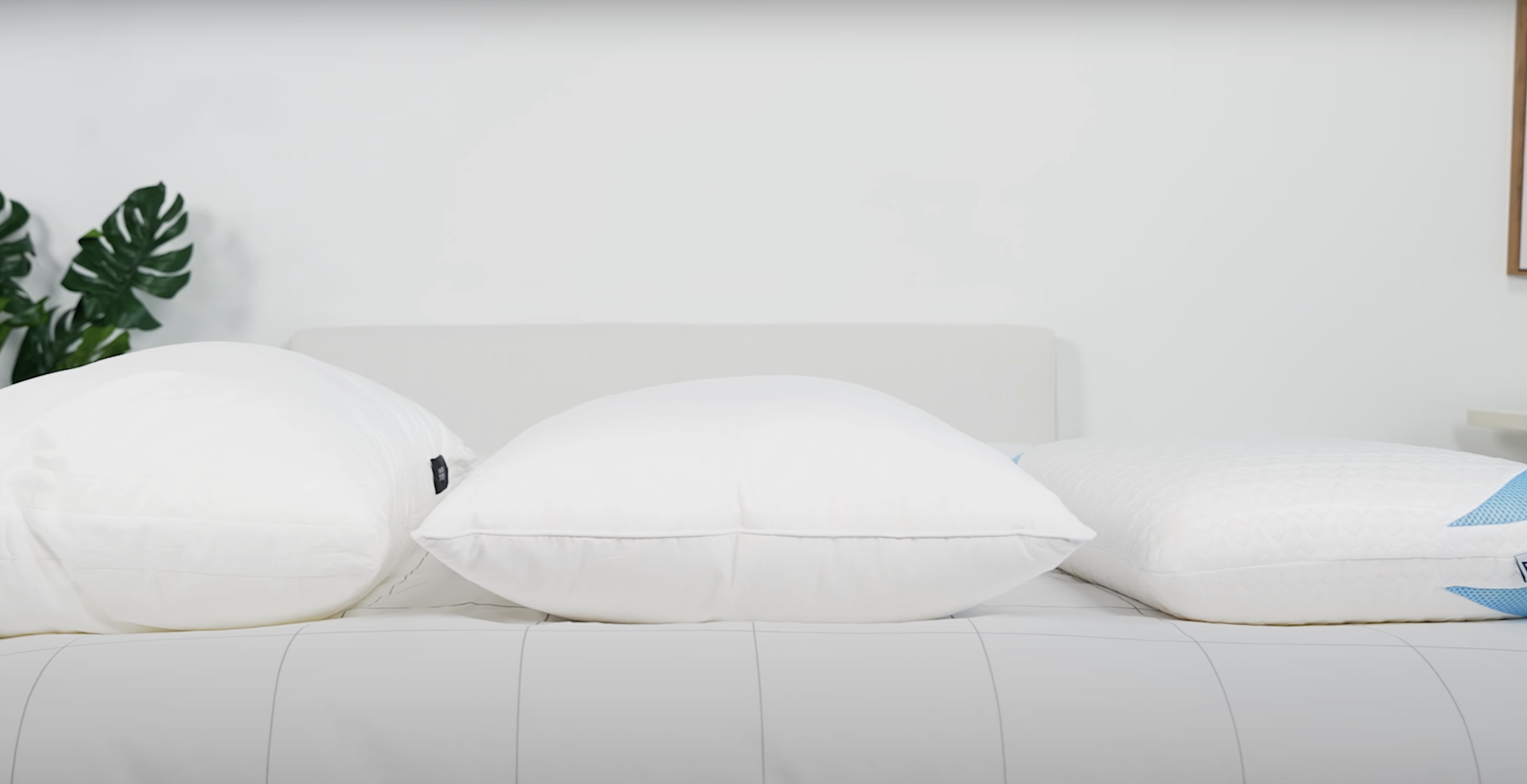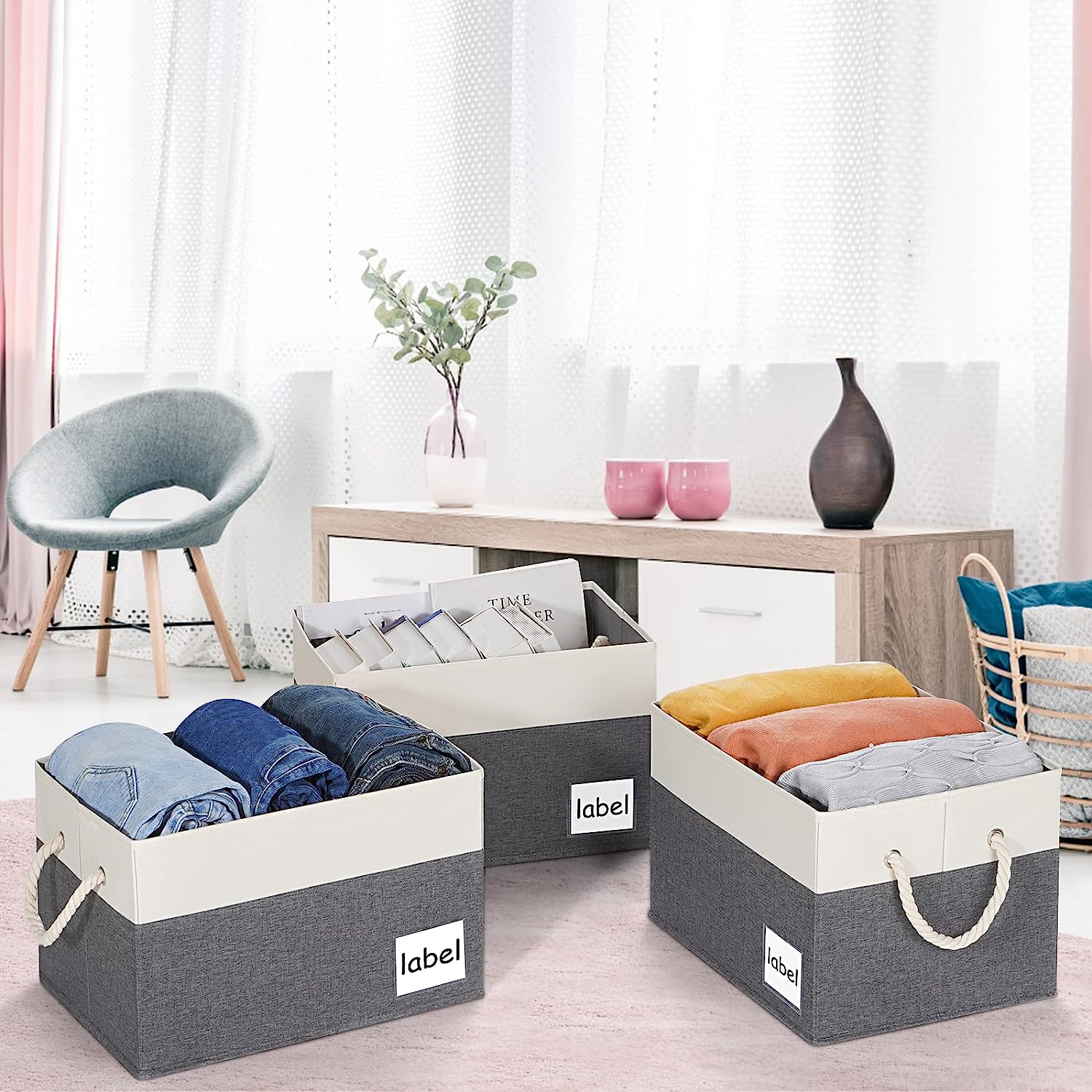

Articles
Why Are Pillows Important
Modified: January 18, 2024
Discover the importance of pillows with informative articles. Find out how pillows can improve your sleep quality and overall comfort.
(Many of the links in this article redirect to a specific reviewed product. Your purchase of these products through affiliate links helps to generate commission for Storables.com, at no extra cost. Learn more)
Introduction
When it comes to getting a good night’s sleep, many factors come into play. From a supportive mattress to a quiet and dark environment, every element can contribute to the quality of our rest. However, one often overlooked aspect that can greatly affect our sleep comfort is the humble pillow.
Pillows play a vital role in supporting our neck and spine while we sleep. They not only provide comfort but also help maintain proper alignment, preventing discomfort and ensuring a restful night’s sleep. In this article, we will explore why pillows are important and how they can significantly impact your overall sleep quality.
Key Takeaways:
- Pillows are not just fluffy accessories; they are essential for neck support, spinal alignment, comfort, allergen control, and temperature regulation, all of which significantly impact sleep quality and overall well-being.
- Choosing the right pillow is a personal journey that involves considering sleeping position, body type, firmness preferences, and health conditions. Investing in a high-quality, hypoallergenic pillow is crucial for long-term sleep comfort and health.
Read more: Why Is Woodworking Important
Neck Support
One of the primary reasons why pillows are important is their ability to provide essential neck support. The neck consists of delicate vertebrae and muscles that need proper alignment and support to prevent strain and discomfort. A pillow that is too flat or too thick can lead to improper alignment, causing neck pain and stiffness.
When selecting a pillow for neck support, it’s crucial to choose one that aligns with your sleeping position. For back sleepers, a medium to high loft pillow with a gentle curve to support the natural curvature of the neck is recommended. Side sleepers may benefit from a firmer pillow to fill the space between the head and shoulder, maintaining proper alignment. Stomach sleepers should opt for a softer, flatter pillow to minimize strain on the neck.
By providing adequate neck support, pillows help alleviate pressure on the cervical spine and muscles, promoting a more relaxed and comfortable sleep position. This can reduce the likelihood of waking up with neck pain or stiffness, allowing you to wake up feeling refreshed and ready for the day.
Spinal Alignment
In addition to neck support, pillows also play a crucial role in maintaining proper spinal alignment while we sleep. The spine is comprised of individual vertebrae that should be in a straight and neutral position to prevent strain and discomfort.
When lying down, the natural curvature of the spine needs to be supported to prevent any misalignment. A pillow that is too high or too low can disrupt the alignment of the spine, leading to issues such as back pain and poor sleep posture.
To ensure proper spinal alignment, it is important to choose a pillow that matches your sleeping position and body type. Back sleepers usually benefit from a medium-loft pillow that supports the natural curve of the neck and maintains the alignment of the spine. Side sleepers may require a higher-loft pillow to fill the space between the shoulder and head, keeping the spine in a neutral position. Stomach sleepers should opt for a softer, flatter pillow to prevent excessive curvature of the spine.
By promoting proper spinal alignment, pillows help distribute weight evenly, alleviate pressure points, and reduce the risk of developing back pain. This allows for a more comfortable and restorative sleep, improving overall sleep quality.
Comfort and Sleep Quality
Pillows aren’t just about providing support; they also significantly impact our comfort and overall sleep quality. A comfortable pillow can make all the difference in how well you sleep and how refreshed you feel in the morning.
When you lay your head on a soft and well-cushioned pillow, it instantly creates a sense of relaxation and coziness. The right level of cushioning helps to relieve pressure on the head, neck, and shoulders, allowing your muscles to relax and unwind. This can help you fall asleep faster and experience fewer interruptions during the night.
Furthermore, a comfortable pillow helps to create a conducive sleep environment. It keeps your head and neck in a comfortable position, reducing the chances of tossing and turning to find a suitable spot. The less you have to adjust and readjust your pillow throughout the night, the more uninterrupted and restful your sleep will be.
Additionally, a pillow that matches your personal preferences, such as firmness and material, can enhance your sleep quality. Some people prefer memory foam pillows that conform to the shape of their head and neck, while others may enjoy the cooling properties of a gel-infused pillow. Finding the right pillow that aligns with your comfort preferences can contribute to more relaxing and rejuvenating sleep.
Ultimately, the comfort and sleep quality provided by a suitable pillow can have a remarkable impact on your overall well-being. It can help reduce sleep disturbances, promote better rest, and improve your mood and productivity during the day.
Tip: Choose a pillow that supports your head and neck to maintain proper spinal alignment while sleeping. Replace pillows every 1-2 years to ensure optimal support and hygiene.
Allergen Control
Another important aspect of pillows is their role in allergen control. Pillows can accumulate dust mites, allergens, and other microscopic particles over time, which can negatively impact those who suffer from allergies or respiratory conditions.
Traditional pillows with porous materials provide an ideal environment for the accumulation of allergens. Dust mites, which are microscopic arachnids, thrive in warm and humid conditions, making our pillows a perfect breeding ground for them. These dust mites can trigger allergic reactions, such as sneezing, watery eyes, and congestion.
Fortunately, advancements in pillow technology have led to the development of hypoallergenic pillows. These pillows are made with materials that are resistant to dust mites and other allergens. They are often crafted with tightly-woven fabrics and treated with antimicrobial agents to discourage the growth of allergens.
By choosing a hypoallergenic pillow, you can minimize the presence of allergens in your sleep environment, leading to better respiratory health and fewer allergy symptoms. Regularly washing and maintaining your pillow will also help in preventing the accumulation of allergens over time.
For individuals who are particularly sensitive to allergens, it is recommended to use allergy-proof pillow covers or cases in addition to a hypoallergenic pillow. These protective covers create an additional barrier against dust mites and allergens, further improving allergen control and creating a healthier sleep environment.
Read more: Why Are Gutters Important
Temperature Regulation
Temperature regulation is another crucial factor to consider when it comes to pillows and sleep quality. Maintaining a comfortable sleeping temperature can significantly impact how well we sleep and how rested we feel in the morning.
Traditional pillows made with materials like feathers or down can retain heat, causing discomfort and excessive sweating during the night. This can lead to disturbed sleep and restlessness.
Modern pillow technologies have addressed this issue by introducing cooling features. Cooling pillows are specifically designed to dissipate heat and regulate body temperature. They are often made with breathable and moisture-wicking materials that allow air circulation and prevent heat buildup.
Additionally, memory foam pillows infused with cooling gel or other temperature-regulating materials can offer a more comfortable sleep experience. These pillows absorb and release heat, ensuring a cooler and more pleasant sleeping environment.
By using a pillow that promotes temperature regulation, you can reduce discomfort from overheating, enhance your sleep quality, and wake up feeling refreshed and energized.
It’s important to note that personal preferences play a role in temperature regulation as well. Some may prefer a cooler sleeping environment and may opt for a more cooling pillow, while others may like the cozy warmth provided by certain materials. Understanding your preferences and choosing a pillow that aligns with them will contribute to a comfortable and restful sleep experience.
Pillow Selection Tips
When it comes to selecting the right pillow for your needs, there are a few tips to keep in mind to ensure optimal support, comfort, and sleep quality:
- Consider your sleeping position: Different sleeping positions require different levels and types of support. Back sleepers generally benefit from medium to high loft pillows, while side sleepers might prefer firmer pillows to fill the space between the shoulder and head. Stomach sleepers typically need flatter, softer pillows to maintain proper alignment.
- Take into account your body type: Your body type can also influence your pillow selection. People with broader shoulders may require a firmer and higher-loft pillow, while those with narrower frames may find medium-loft pillows more comfortable.
- Determine your desired firmness level: The firmness of a pillow is a matter of personal preference. Some prefer a soft and plush feel, while others enjoy a firmer support. Experiment with different firmness levels to find the one that suits you best.
- Consider any specific health conditions: If you have specific health conditions or concerns, such as allergies or neck pain, look for pillows that address those issues. Hypoallergenic pillows or memory foam pillows may be suitable for allergy sufferers, while contoured pillows can provide additional neck support.
- Invest in quality materials: Opt for pillows made with high-quality materials that offer durability and longevity. Materials like memory foam, latex, or gel-infused foam can provide excellent support, comfort, and temperature regulation.
- Read reviews and consider testing: Before purchasing a pillow, read reviews from other users to get an idea of its performance and quality. If possible, try testing the pillow in person or look for retailers that offer trial periods to ensure a perfect fit.
- Regularly maintain and replace your pillows: Regularly fluffing and cleaning your pillows can help maintain their performance and extend their lifespan. However, pillows do wear out over time, so be sure to replace them when they no longer provide adequate support or comfort.
Remember, finding the right pillow is a personal journey, and what works for one person may not work for another. Take the time to explore different options and listen to your body’s needs to ensure the best sleep experience possible.
Conclusion
Pillows are often underestimated, yet they play a significant role in ensuring a good night’s sleep. With their ability to provide neck support, maintain spinal alignment, enhance comfort, control allergens, and regulate temperature, pillows can greatly impact our overall sleep quality and well-being.
By selecting the right pillow that suits your sleeping position, body type, and personal preferences, you can optimize your sleep experience. Whether you prefer a soft and plush pillow or a firmer and more supportive one, there is a perfect pillow out there for you.
Investing in a high-quality pillow made with durable and hypoallergenic materials is essential for long-term sleep comfort. Regularly maintaining and replacing your pillows ensures that they continue to provide effective support and contribute to a healthier sleep environment.
Remember, sleep is vital for our physical and mental well-being. The right pillow can make a significant difference in the quality of your sleep, leading to improved productivity, mood, and overall health.
So, the next time you’re looking to enhance your sleep experience, don’t overlook the importance of a great pillow. Your body will thank you for the support, comfort, and restful sleep it provides.
Frequently Asked Questions about Why Are Pillows Important
Was this page helpful?
At Storables.com, we guarantee accurate and reliable information. Our content, validated by Expert Board Contributors, is crafted following stringent Editorial Policies. We're committed to providing you with well-researched, expert-backed insights for all your informational needs.















0 thoughts on “Why Are Pillows Important”